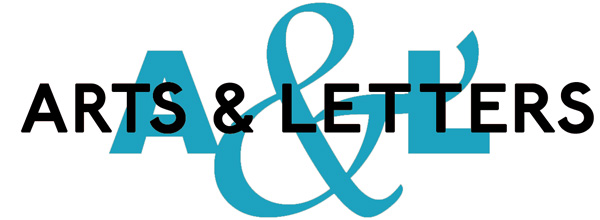Ernestine Montoya, one of our assistant fiction editors, spoke with our A&L Fiction Prize judge, Amy Hassinger:
On Tuesday, March 7th, Amy Hassinger visited Georgia College to read from her latest novel, After the Dam. The book tells the story of Rachel, a new mother who travels back to her grandmother’s farm in Maine, where she spent her childhood summers and met her first love. Though she initially returns to care for the ailing Grand, Rachel also hopes her time there can be spent reclaiming herself. I had the opportunity to meet Amy and her friend and colleague, the poet Terry Grimm, who also read from her latest poetry collection, during their time in Milledgeville. In the flesh, Amy is bright-eyed, insightful, and well-spoken. Perhaps most notably, she is wise in the ways of the writer, both as a career and an art. Don’t worry. I took some notes.
- Fictional females are easy fodder for criticism. Consumers of any genre, be it prose, television, film, or celebrity gossip, are quick to judge the actions of women, especially when those women are mothers. After spending time with book groups that read the novel, Amy realized a similar theme: they were most infuriated by Rachel’s decisions when those decisions affected her newborn, Deirdre. This is understandable, of course, but it does lead to a recurrent conundrum: expecting women in fiction, mothers or not, to be above reproach. Luckily for us, Amy’s novels, which all feature a female protagonist as the central character, are not concerned with painting a portrait of the perfect woman, but rather, a sometimes wise, foolish, relatable, infuriating, lovely, complicated, and yes, at times unlikable, human.
- The P-word is alive and well— but not unbeatable. For any female professional, there is one word that, if we allow it, can wield immense power: pushy. The P-word can be innocuous and deadly. The P-word can keep us from asking for job opportunities or favors. But the P-word is largely gendered. Men do not often experience such anxiety when they are simply asking for what they want. After discussing this odd phenomenon with Amy and Terry, I was reminded of a simple fact: it is okay to ask for things.
- Be nice. To a young writer, the writing world can at times feel impenetrable and daunting, but it is a small one, after all. Make connections, be genuine, and do what you can to help other writers succeed. Ask magazines if they’d like to publish book reviews that you’ve written about up-and-coming writers’ novels. Be honest about your experience with the book, but your goal is not to be the Renata Adler of small press book reviews. (Though if there were such a person, I confess I would be curious.) You are, rather, sharing with other readers what can be gained from the work, making a connection with the author of the book, and adding to your own professional experience. No nastiness required.
Though I am happy to share what I learned, I must express regret that you did not hear the words directly from Amy. Her presence in person is difficult to describe, but I will say this: she has that rare quality, quickly vanishing from modern times—when Amy listens to you, it is impossible not to feel interesting. And considering the kind, intelligent source, that is saying quite a lot.
It’s not too late to submit to the Arts & Letters Fiction Prize, judged by Amy Hassinger – the contest closes March 31st!








